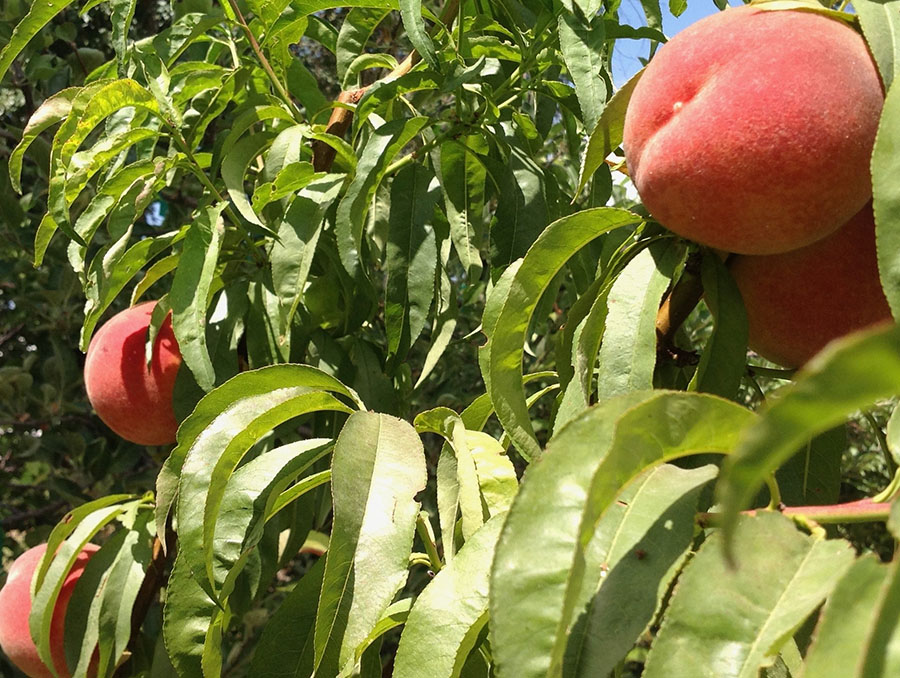"Gardening in Nevada: The Bartley Ranch Series” returns in February to help both new gardeners and those who already have a green thumb hone their gardening skills. Led by University of Nevada, Reno Extension and their certified Master Gardeners and offered in partnership with Washoe County Regional Parks and Open Space, these classes are free and run 6 – 8 p.m., every Tuesday, Feb. 7 – March 28, at Bartley Ranch Regional Park, 6000 Bartley Ranch Road in Reno.
“From patio and balcony spaces to those with small or large yards, these classes are great for anyone who wants to learn the why’s and how’s from people who live, grow and harvest in our northern Nevada area,” Rachel McClure, Master Gardener coordinator for Extension in Washoe County, said.
The classes are taught by certified Extension Master Gardener volunteers who have experience living and gardening in northern Nevada. International Society of Arboriculture continuing education units may be available for some classes. Classes include:
- Feb. 7: Fruit Tree Selection — Extension Master Gardener and retired certified arborist Michael Janik will discuss fruit tree needs in northern Nevada, including soil, USDA zones, chill hours, watering and pest control. He will also talk about fruit varieties he has grown and is currently growing to determine suitability for our climate.
- Feb. 14: Let’s Talk Tomatoes — Extension Master Gardener Beth Heggeness will discuss how to plan for growing and how to grow tomatoes successfully in northern Nevada.
- Feb. 21: Gardening for Pollinators — Extension Master Gardener Barbara Fenne will explore different types of native, nonnative and common plants, as well as garden structures, to encourage and support pollinators. She will discuss insects, including honey and native bees, wasps and many other tiny flying things in our gardens and the integrated pest management aspects that support them.
- Feb. 28: What Lives in the Nighttime Garden? — Learn what is creeping around in your garden while you sleep, as Extension Master Gardeners Shari Elena Quinn and Linda Fulton explore the beneficial and nonbeneficial garden nightlife.
- March 7: Pruning and Training Fruit Trees — Extension Master Gardener Michael Janik, will present fruit tree pruning basics and how trees respond to pruning. He will discuss size control using appropriate rootstocks, how proper early training will reduce the need for pruning as the tree matures and when to prune. Step-by-step instructions for training fruit trees as central leaders, open center and espaliers will be discussed.
- March 14: Success With Succulents — Increase your knowledge with tips, tricks and methods for success with succulents for your garden beds and containers with Extension Master Gardener Volunteer Liz Morrow. Together we will explore the difference between cacti and succulents, hardy or soft, and which plants do the best in our high-desert climate.
- March 21: Planting for Food Preservation — There is more to preserving your harvest than canning. Extension Master Gardeners Doreen Spires and Cindy Edwards will teach you how to plant for your family's needs, which varieties of fruits and vegetables work best, different container options, and alternate methods of preservation for consideration.
- March 28: Successful Vegetable Gardening — Extension Master Gardener Randy Robison will share his secrets to harvesting abundant, award-winning produce from in-ground and raised-garden beds in our high-desert climate. He will share information about amending the soil to help plants thrive, the importance of crop rotation, strategies to increase yields, companion planting benefits and how to discourage unwanted pests.
Registration for the series can be done online.
For more information on “Gardening in Nevada: The Bartley Ranch Series,” or for general horticultural inquiries, contact Extension at 775-784-4848 or visit the Extension website. Persons in need of special accommodations or assistance should contact Paul Lessick, civil rights and compliance coordinator, at plessick@unr.edu or 702-257-5577 at least five days prior to the scheduled event with their needs or for more information.
















